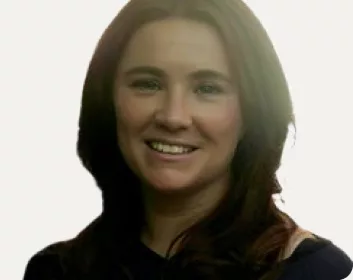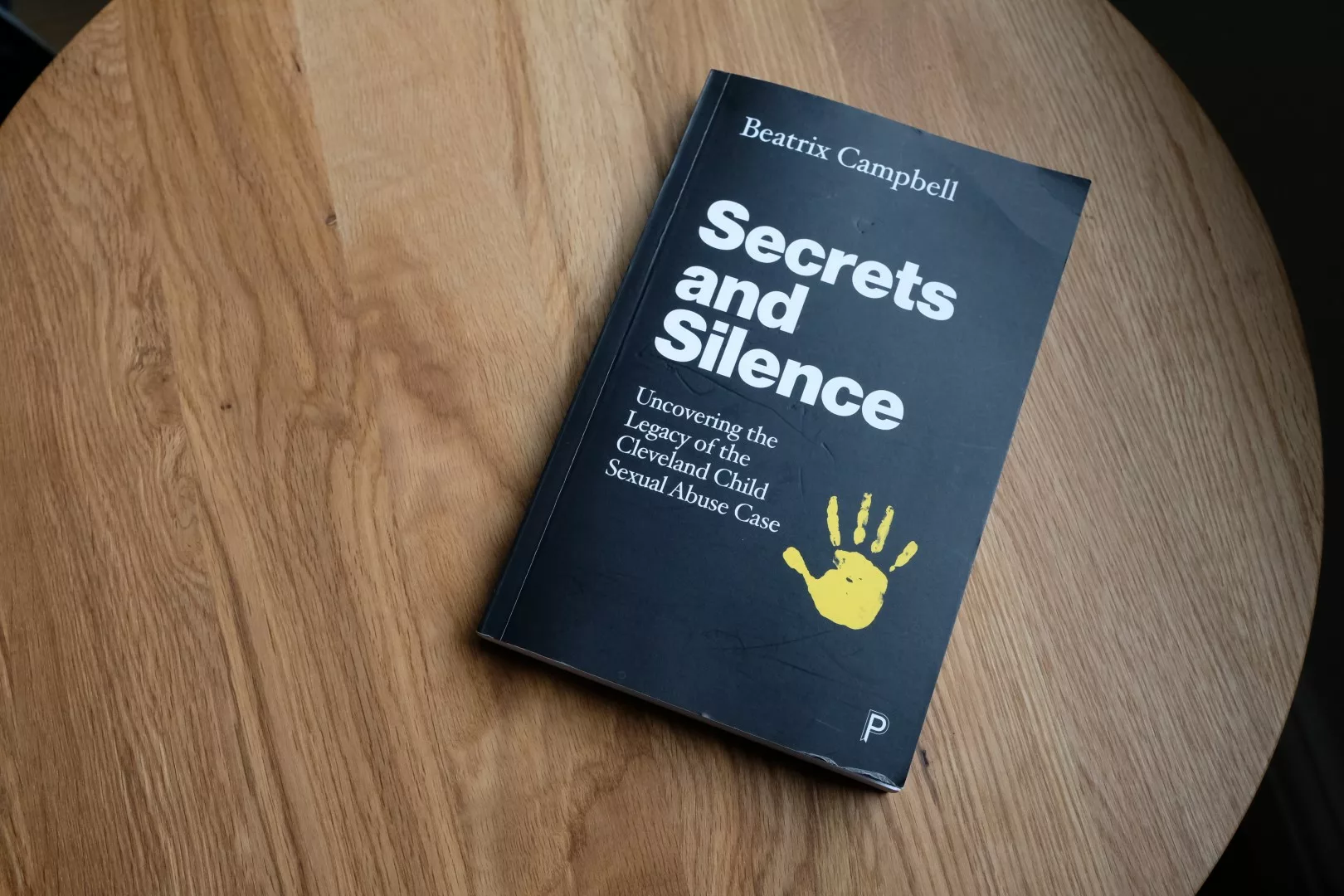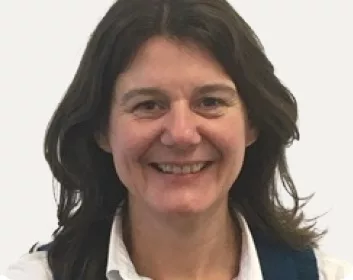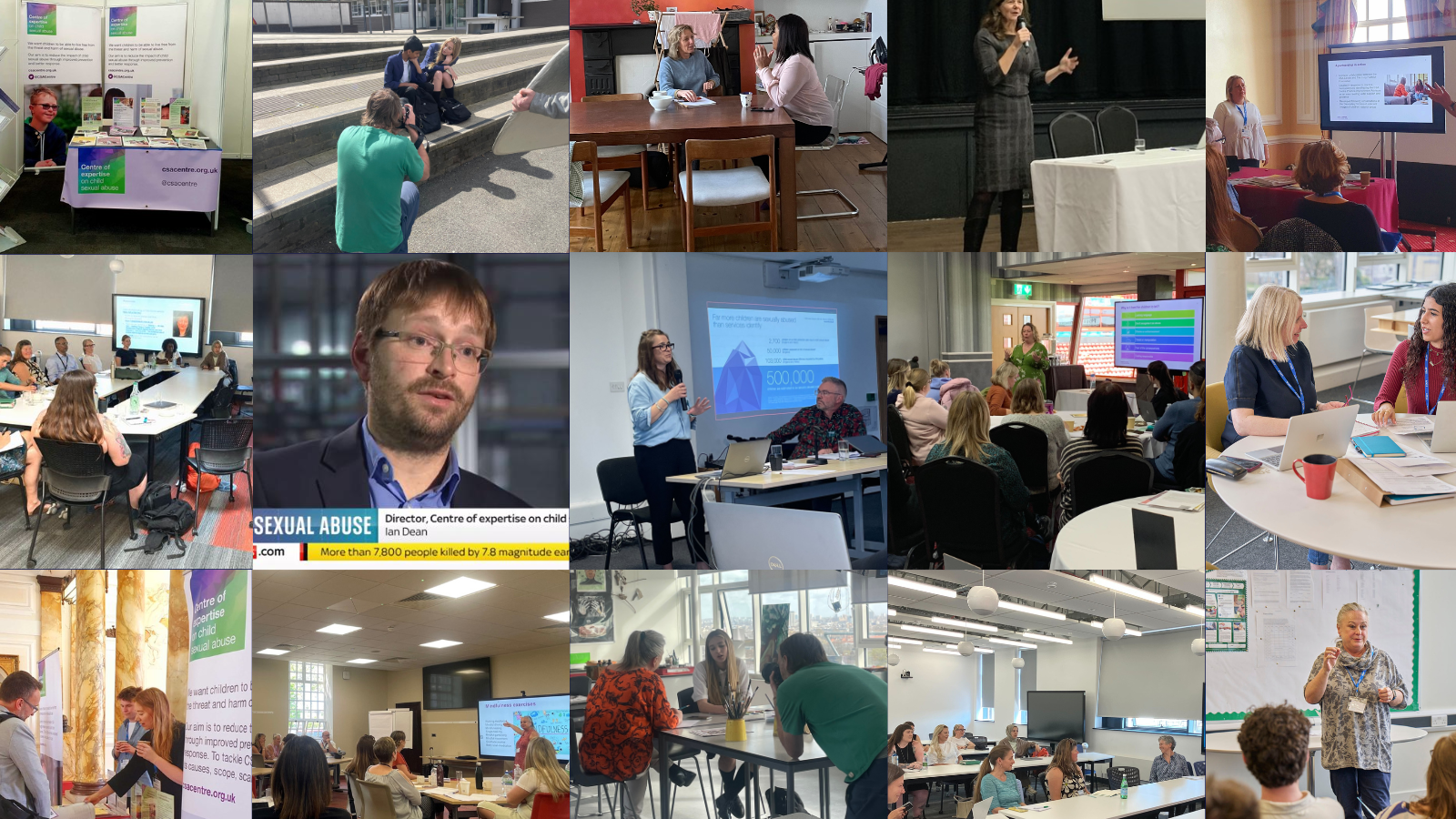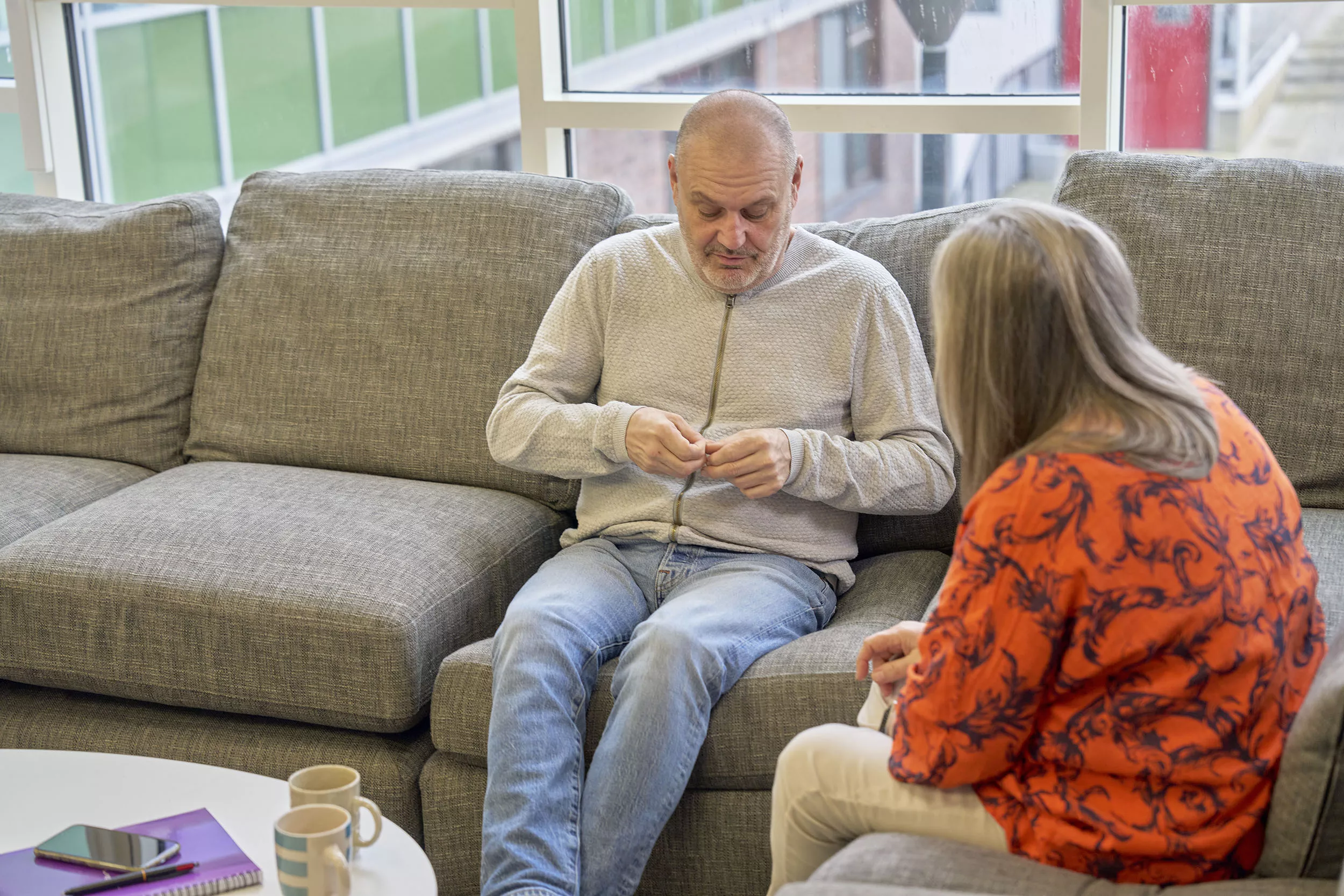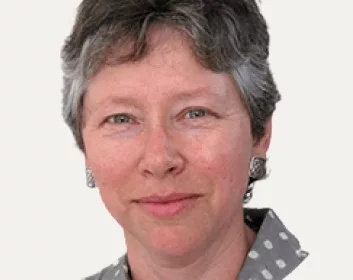The start of 2022 brought with it not just political news, pandemic headlines, and likely cost of living challenges, but also a significant amount of data reporting relating to sexual offending and sexual abuse of children. As ever the headlines can and will only tell part of the story and there is often detail relating to children’s experiences or what we might do to improve practice that can be overlooked. In this blog we take the opportunity to pull out some of the aspects that interested us at the CSA Centre, and we think will interest you too.

Below I reflect on three recent stories in the press and consider the broader contextual understanding to what is being reported and provide reflections from the CSA Centre. We hope that by continuing to explore the information we are seeing in the public domain, and the questions it poses, that professionals and policy makers alike will be better informed in making the decisions necessary to improve our response to child sexual abuse and better protect children.
Child abuse prosecutions down 50 per cent (The Times, 20.01.22)
This story, generated by the NSPCC, highlighted a concerning 52% total drop in prosecutions of child sexual abuse in England and Wales from 6,394 in 2016/17 to 3,025 in 2020/21. This was compounded by the number of convictions down 45 per cent, in the same period.
These figures highlight a significant fall, but we should also be concerned about the trends we are seeing across criminal justice, despite a decade of increased recording of offences by police, of efforts to encourage victims to report and prioritising a response, the numbers of cases we see progressing through the criminal justice system is lower than 10 years ago. Between 2014 and 2016 there were signs that things were improving, and the number of prosecutions and convictions rose however since then they have been on the decline. The current situation is that an already small number of prosecutions is getting increasingly smaller. To put the numbers in context, in 2020/21 almost 90,000 child sexual abuse offences were recorded by the police in England and Wales and we estimate that half a million children will have experienced some form of sexual abuse in the same year.
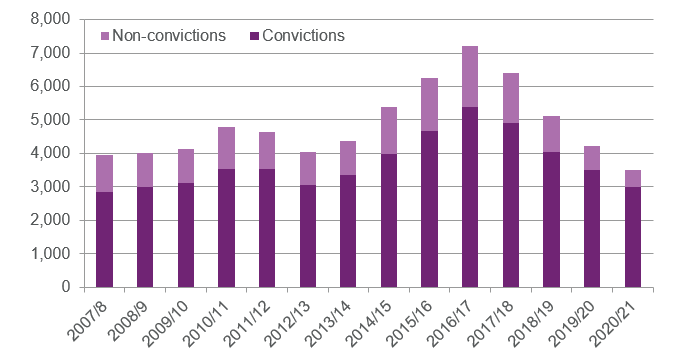
Defendants prosecuted and convicted for sexual offences flagged as ‘child abuse’, England and Wales, Crown Prosecution Service
Recorded rapes and sexual offences in England and Wales hit record high (The Guardian, 27.01.22)
According to the Office for National Statistics (ONS) police forces in England and Wales recorded the highest number of rapes and sexual offences over a year, with 63,136 rapes recorded in the year to September 2021, up 13% from the previous period (56,119).
What wasn’t presented in the analysis of this data was that a large proportion of victims of these sexual offences are children. There were significant increases in the number of child sexual abuse offences recorded by the police: three of the five offence types seeing reporting increases of over 20% in that 12-month period were offences against children: sexual assault on a female child under 13, rape of a female child under 16 and abuse of children through sexual exploitation. There were nearly 7,000 more child sexual abuse offences recorded in the latest year compared to the previous 12 months, bringing the total number of child sexual abuse offences recorded by the police at the highest ever. New data released by the ONS in the same release was entirely missed in this coverage: showing that 23 out of every 25 sexual offences online that are recorded by the police are committed against children.
Of course, it is important that we highlight changes in all recorded sexual offences, but it is also important to understand the nature and context of this offending if we are to act to prevent, disrupt and respond effectively. The actions needed to tackle sexual offending against adults and children are different and unless we recognise this, we risk designing responses which have limited impact.
Grooming gangs still sexually abusing children across country in ‘most degrading and destructive ways’ (The Independent, 01.02.22)
Children are still being sexually exploited by grooming gangs in all parts of England and Wales in the “most degrading and destructive ways”, a report by the Independent Inquiry into Child Sexual Abuse (IICSA) said. Assumptions that abuse had fallen since high-profile cases in Rotherham and Rochdale were “flawed,” as the report exposed “extensive failures” by councils and police, leaving victims being treated as offenders, while perpetrators are not investigated or prosecuted.
The latest report from IICSA on Child Sexual Exploitation by Organised Networks echoes the concerns we have on the continued prevalence of sexual exploitation of children across England and Wales. The report’s recommendations align with many of our asks, most notably the need for significant improvements in data collection and consistency across safeguarding services including police, children’s services and health. In our most recent report on the Scale and Nature of Child Sexual Abuse we concluded that significant gaps remain in what we know about this form of abuse in England and Wales and that includes the duration and frequency of abuse; contexts and locations in which it takes place; and basic profile information about victims and perpetrators.
As this report highlights – once again – there continues to be a need to improve how agencies collect, record and analyse data on child sexual abuse. Of course, it is also important to remember that while improvements to the systems that capture data are important, that data cannot be separated from the people who create it and the culture in which they work. We continue to call for more enhanced training and support for all professionals working with children, to empower them with the knowledge and confidence that they need to better protect children by identifying concerns of child sexual abuse and recording them appropriately in data systems.


